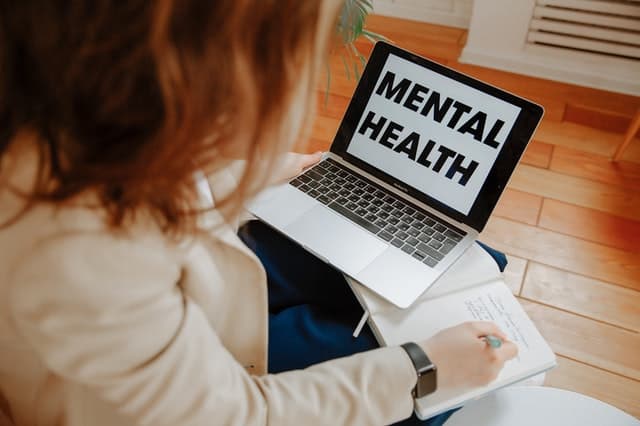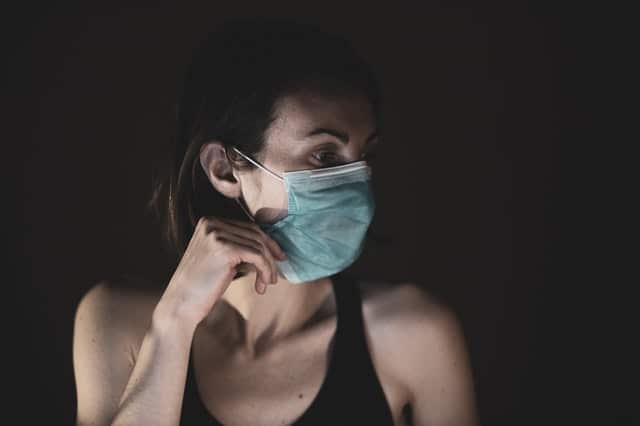As a brand new mental health program for Idaho residents opens up at the respected Ashwood Recovery treatment facility in Boise, we ask if the coronavirus pandemic has finally opened up the state’s eyes to the huge importance of mental wellbeing for all. Social distancing. Frontline. Lockdown. A superspreader. Key workers. The “rona.” A covidiot. Expressions that were certainly not in regular usage a few months ago (a couple didn’t even exist back then), but we surely live with them now, don’t we? In the mainstream media, in presidential briefings, and in our own digital conversations. Over in London, England, they even refer to “catching a dose of Miley” (as in Miley Cyrus… virus). And “zoombombing” is now a thing everywhere (that’s hijacking a Zoom video call, for the likes of you and me). The world is changing, and a new normal is on the horizon. People we may have taken a little for granted in the past – nurses, auxiliary staff, hospital cleaners, grocery cashiers, emergency workers, supermarket shelf-fillers, truck drivers – are the new superheroes, saving lives and keeping our daily lives close to what they used to be. Let’s hope our newfound respect for these people is here to stay. And every single one of us is now becoming more and more aware of the importance and vitality of our mental well-being, our mental health.
Idaho’s Mental Health in a Time of Corona
“Behavioral health systems in Idaho are really very inadequate.” – Sen. Grant Burgoyne, D-Boise (January, 2020) Only this year, before the U.S. went into temporary lockdown, Senator Grant Burgoyne was bemoaning Idaho’s mental health treatment initiatives. Although these initiatives have been many and diverse in recent years, they have not impacted upon the exceedingly high suicide rate in the state, the high number of residents with mental health disorders or the simple fact that less than half of these people actually ever receive the treatment and care that they need. The issue of mental health, now brought sharply into focus by the current need for self-isolations and social distancing, remains a thorn in the side of Idaho’s state government’s health policy. It does not take an averagely intelligent person to work out that the state needs more of the type of service now being offered by Ashwood Recovery. But before we take a detailed look at mental health across Idaho and, in particular, the new treatment program being offered to all at Ashwood Recovery, let’s go back (a little less than a year, in fact) to a time “pre-corona,” pre-lockdown and pre-quarantine, and long before we were being asked to keep our distance – physically… and mentally.
The Story of Charles Ruffing
Acclaimed Boise Senior Firefighter & Father of Five
On May 21, 2019, Charles Ruffing, a much-loved and distinguished senior firefighter (and also the recipient of several awards, including Idaho Firefighter of the Year in 2008), took his own life at the department’s Station 6, in Boise, ID, his home-from-home for the previous 20 years. Charles’ suicide left behind his wife of 33 years, Tonya, and their 5 daughters. He was just 53 years old. Charles had been receiving treatment for Post-Traumatic Stress Injury (PTSI) before his death – the result of a severely crushed knee he incurred during a call-out at Boise State University on the night of September 10, 2004. The injury never healed fully, even after the 14 surgeries he underwent to give him back the necessary (but albeit limited) function he needed to continue as a firefighter. PTSI is just as it sounds, exceptionally similar to the more commonly known Disorder, as in PTSD. However, although the psychological and physical symptoms are virtually the same, the illness emanates from the trauma of the actual physical injury, as opposed to the event itself. It was only because of Charles’ suicide, and the great work done by Boise Fire Chief Dennis Doan (championing those firefighters who have required treatment for mental illness and post-traumatic stress injury), that the legislation surrounding these conditions was finally changed. Unbelievably, firefighters who have needed psychological treatment as a result of an injury during their service, since 1994, have had to use their own vacation time and money. On July 1, only last year, a new law in Idaho took effect (for the next 4 years at least), allowing first responders to file for workers’ compensation if they could show they have a PTSI associated with their job. Yes, first responders… working on the frontline… paramedics, firefighters, to name but two…
“While I am proud of that legislation, it doesn’t go far enough, and we need to do more.” – Boise Fire Chief Dennis Doan, speaking at the memorial service of Charlie Ruffing

The Sad State of Idaho’s Continuing Battle with Mental Health
When you’re U.S. state has consistently and historically had one of the worst rates for suicide in the entire nation, along with a worryingly high percentage of people with mental health disorders that will never receive treatment, you have more than just a problem – you have a healthcare system that is clearly not meeting the dire needs of those who are most in need. Here are just a few frightening statistics that demonstrate how clearly the state government of Idaho (its health departments and their contracted services) needs to finally resolve this serious issue for its residents:
- According to the National Alliance on Mental Illness (NAMI), nearly a quarter of Idahoans are currently living with a mental illness
- In 2016, the “Gem State” had the 8th highest suicide rate in the U.S.
- This rate is an alarming 50% higher than the national average
- Around 13% of Idaho adults who lack health insurance have a serious mental illness, eg. schizophrenia or bipolar disorder, and
- Over half of those Idaho residents with a clinically diagnosed mental health condition will not receive the necessary treatment
Let’s just remind ourselves of an earlier quote in this article: “Behavioral health systems in Idaho are really very inadequate.” – Sen. Grant Burgoyne, D-Boise (January, 2020). Maybe it should read… “are still really very inadequate…” 
A Promise of Hope for Idaho Residents
Branded under the name “Promise,” the new mental health treatment program now open and running at Ashwood Recovery’s addiction treatment facility in Boise is clearly a major step in the right direction as Idaho looks to finally conquer its adversary of undiagnosed and untreated mental illness. Since 2009, Ashwood Recovery has run successful addiction recovery outpatient centers in Boise and Nampa, Idaho, treating predominantly state residents as these people seek a meaningful recovery from their addictions and their demons. They are two of a family of Northpoint addiction centers in the Idaho and Washington state areas providing a full range of both inpatient and outpatient services:
“I am extremely proud of what we have created at Northpoint Recovery, we get to do something we love and help people change their lives.” – Logan Stroud, Vice President, Northpoint Washington
Using an evidence-based approach in conjunction with professionally-delivered proven therapies, these accredited facilities have changed the lives of thousands of patients in their care, enabling them to move onto more fulfilling and enriching lives without their drugs of choice.
What Does Ashwood’s “Promise” Mental Health Treatment Involve?
For those suffering with a mental health disorder (especially those who have yet to be clinically diagnosed), the state’s current challenges, eg. coronavirus, the opioid crisis, and Idaho’s struggling mental health policies, simply add to a sufferer’s normal hefty challenges of daily existence. Factor in the serious socio-economic effects of the global pandemic, eg. enforced social isolation, widespread unemployment, increasing levels of anxiety and stress, and so on, it’s clear today’s healthcare systems and many of its mental health patients are close to breaking point. Programs like Ashwood’s “Promise” aren’t just welcome – they are vital. Specifically created and designed for those clients who need to continue the stabilization process after leaving an inpatient care (detox) program, Ashwood Recovery’s “Promise” is an exceptionally highly structured and personalized outpatient program for people whose primary diagnosis is mental health related. Run as a Partial Hospitalization Program (PHP), the program offers professional clinical treatment for clients who require continued stabilization and then need vital support to transition back into a more independent lifestyle. The “Promise” Mental Health Treatment Program Schedule The program lasts between 4 to 5 weeks, depending on the exact needs of the patient. It’s curriculum includes an array of education on mental health, trauma work, experiential activities, art therapy, yoga/thai chi, skill building, process group, goal-building and evaluation, and music therapy. All clients are assured of the following:
- Daily contact with medical staff (RN) and psychiatrist as needed along with medication management of non-addictive forming medications
- All groups are facilitated by licensed master-level clinicians
- Crisis intervention is provided as needed
- Psychiatric Evaluation
- 1 weekly session with a counselor
- 2 weekly appointments with a psychiatrist
- Daily group 9-12pm and 1-4pm
- Daily peer support
- Lunch will be provided on site
- Family sessions as requested
- Discharge planning for ongoing IOP and individual care within the community upon completion of track
- Assistance with FMLA or STD paperwork as needed
- Case management as needed
Which Mental Health Disorders & Conditions are Treated?
The following disorders can be treated within the “Promise” mental health program:
- Panic Disorder
- Obsessive-Compulsive Disorder (OCD)
- Post-Traumatic Stress Disorder (PTSD)
- Social phobia (Social Anxiety Disorder)
- Generalized Anxiety Disorder (GAD)
- Schizophrenia
- Eating Disorders
- Substance Use Disorder (SUD)
Who is the Treatment Program Intended For?
Ashwood Recovery’s mental health treatment program is intended for clients who require highly structured treatment as they continue their stabilization process after leaving inpatient (detox) care. All potential clients are clinically assessed, whereupon it is determined if their primary diagnosis is mental health related. Ashwood Recovery accepts clients onto the program who:
- Need to stabilize their mental health symptoms
- Need to receive group and individual care
- Require psychiatric consult and evaluation
- Have medication management needs
- Need support within the community, and
- Need education on how to better manage their diagnosis
How Do I Get Started?
Clients, family members, and other referral sources can call the admissions line: (855) 953-1907 from 8 a.m. to 5 p.m., Monday to Friday, where one of Ashwood’s admissions specialists can then guide you through the process.
A New Normal
Cleaner air to breathe, clearer city skylines, a sense of real community in neighborhoods, a grateful acknowledgement of the person wearing the nurse’s uniform or the young college student filling the grocery store’s shelves, working the till or bagging your groceries, looking after those who need help, a healthy place to live… All of things have come to pass in this time of coronavirus, and many people wish them to stay. Called (and as-yet-undefined) the “New Normal,” it’s a consensus that this is somehow an opportunity to make lasting, perhaps even radical changes to what we wish for our society in the future. Just to simply make it a better one. Here’s an idea for the suggestion pot: Bring to an end the social stigma of mental health, once and for all. The vast majority of those suffering with mental health disorder have their own perceived stigma to deal with – for some, it’s an unavoidable part of their condition. We can’t do much about that as “Joe Public,” but by being more responsive to the needs of others, and understanding what it’s maybe like to walk in another’s shoes – a new normal, perhaps we can begin to consistently show the kind of empathy for one another that appears in such times of national concern as this. If you are someone with a mental health disorder, whatever you do, stay connected to others and get support. Mental health treatment programs – like Ashwood Recovery’s “Promise” – enable sufferers to experience drastically reduced symptoms and enjoy a far better quality of life.


